May 25, 2025 | 21:02 GMT +7
May 25, 2025 | 21:02 GMT +7
Hotline: 0913.378.918
May 25, 2025 | 21:02 GMT +7
Hotline: 0913.378.918
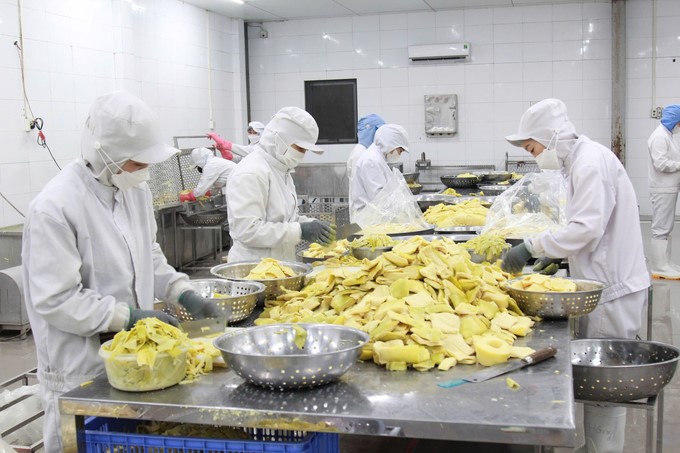
Yen Bai's Bat Do bamboo shoots are exported to Japanese and Taiwanese markets. Photo: Thanh Tien.
In some key Bat Do bamboo-growing communes in Tran Yen district (Yen Bai province), such as Kien Thanh, Hung Khanh, Luong Thinh, and Hong Ca, along the roads to the upland villages are green bamboo forests stretching headlines. Many newly built houses are fragrant with mortar, hidden out in bamboo groves, creating a scenery like a town in the forest.
According to many locals, the prosperity of the villages is thanks to Bat Do bamboo trees imported from China since the 2000s. This multi-benefit species greened bare hills, gradually changed inefficient crops such as maize, cassava, acacia, bodhi, tea, and palm, and changed people's cultivation practices, creating stable and sustainable income.
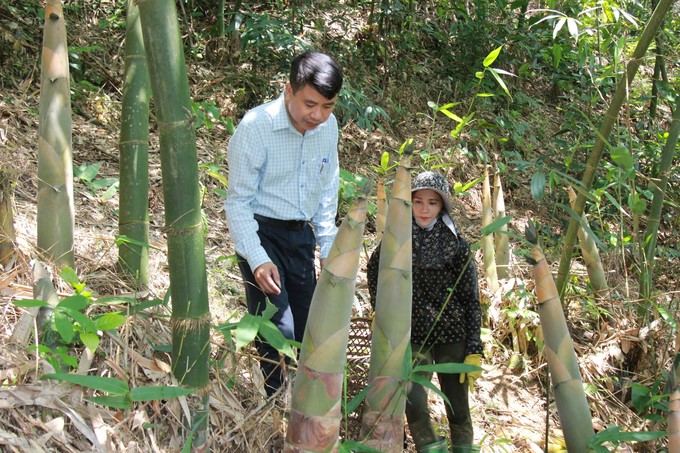
Many upland households reduce poverty sustainably thanks to Bat Do bamboo trees. Photo: Thanh Tien.
Mr. Nguyen Thai Binh, Deputy Director of the Yen Bai Department of Agriculture and Rural Development, said that Yen Bai province currently has a nearly 6,000-ha bamboo area, concentrated mainly in Tran Yen, Yen Binh, Van Chan, Van Yen, and Luc Yen districts. After more than 2 decades of rooting, Bat Do bamboo has become a major livelihood, contributing to poverty reduction for thousands of households, most of which are ethnic minorities in extremely difficult areas.
Bat Do bamboo is like indigenous bamboo and Bambusa nutans species, suitable for the climate and soil, so it grows quickly. The main product from Bat Do bamboo is bamboo shoots. The whole province's output is estimated at nearly 40,000 tons/year, bringing an income of over VND 200 billion.
In early times, bamboo shoots were mainly purchased and pre-processed by some traders and cooperatives and consumed in the domestic market. In recent years, many large businesses have invested in building factories with advanced production lines, signed product consumption contracts with people, and exported processed products to demanding markets such as Japan and Taiwan.
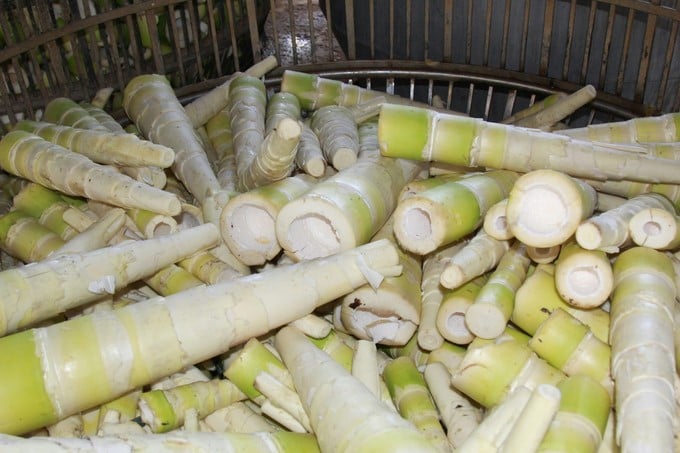
The whole Yen Bai province's fresh bamboo shoot output reaches about 40,000 tons/year. Photo: Thanh Tien.
The export of products from Bat Do bamboo shoots is of special importance by bringing foreign currencies to businesses, thereby building a sustainable consumption linkage chain and increasing purchasing prices for farmers to have higher income.
However, through research in some businesses, annual exports of bamboo shoot products grow, but the volume increases inconsiderably. Therefore, to sustainably export products from Bat Do bamboo shoots, creating breakthroughs for this item is not a story of the business, but it is necessary to have the participation of people and local governments in cultivating, harvesting, and preserving products.
Yen Thanh JSC is a pioneering and attached enterprise with the Bat Do bamboo material area from the early years of development. Currently, the company has built a modern factory, storage warehouse, and processing line for purchasing and processing export products, creating jobs for more than 100 local workers with an income of VND 6 - 8 million/person/month.
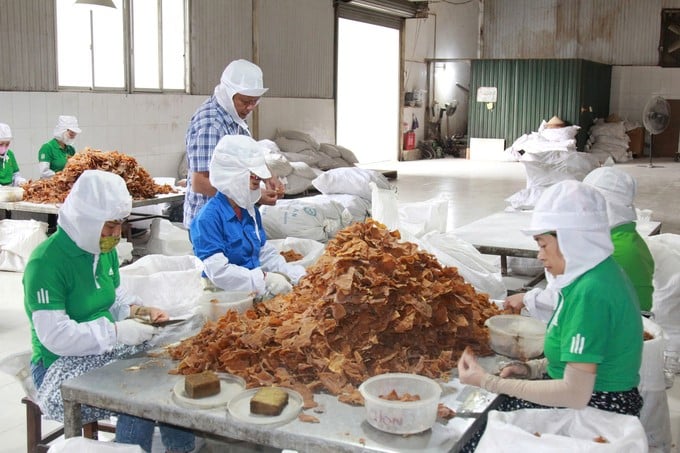
Each year, Yen Thanh JSC purchases about 5,000 tons of fresh bamboo shoots for people. Photo: Thanh Tien.
Particularly in 2024, the company bought nearly 5,000 tons of commercial bamboo shoots, up 30% compared to the previous year. After processing, the company exported more than 200 tons of dried bamboo shoots to the Japanese market and over 1,000 tons of salted bamboo shoots to Taiwanese partners.
According to Mr. Nguyen Duc Dung, Director of Yen Thanh JSC, the market for bamboo shoots in the world is now very open. In addition to traditional markets in Asia, the US and European markets are also very potential. However, domestic processing enterprises have not reached those markets.
The advantage of Yen Bai is the better, more delicious quality of bamboo shoots thanks to suitable climate and soil and people's rudimentary cultivation measures. Besides, with the State's preferential tariff policy for agricultural and forestry products for export and stable political situation, partners trust and sign long-term consumption contracts.
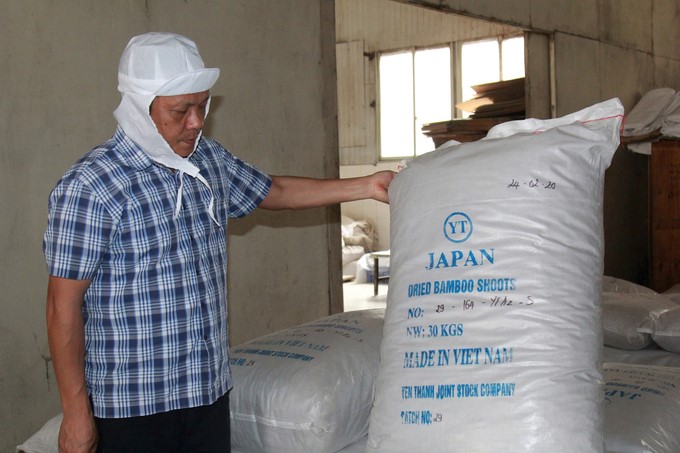
Bamboo shoots of Yen Thanh Joint Stock Company are exported to Taiwan and Japan. Photo: Thanh Tien.
Bat Do bamboo shoots have become a special product of Yen Bai. Stabilizing product prices and output to avoid the situation of "good harvest, bad price" or "good price, bad harvest" is especially important. In order for sustainable development, people need to strictly comply with the contract with reputable businesses, which are companies and cooperatives that have supported seeds and techniques, built raw material areas, and invested in building product purchasing and processing factories in the locality. Avoid selling products to businesses for immediate benefits.
Additionally, it is necessary to comply with the process of cultivation, care, harvest, and clean storage in the organic direction to protect the brand and avoid the lesson of dirty tea production that has occurred in the locality. Because only a small part produced in the wrong process will discredit the raw material area.
Yamazaki Vietnam Co., Ltd. is a joint venture enterprise with Japanese and Vietnamese investment capital. On average, each year, the company purchases about 3,000 tons of fresh bamboo shoots, then processes and exports salted and dried bamboo shoots to the Japanese market with a revenue of over VND 23 billion/year. It is expected that in 2025, the company will purchase about 5,000 tons to increase the export output.
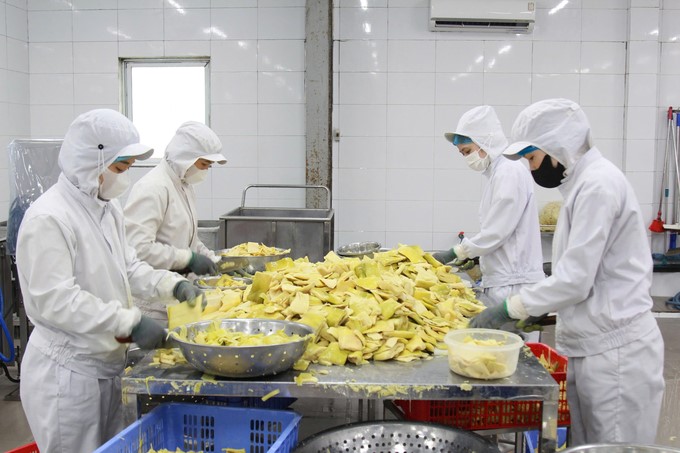
Preserving the brand of the raw material area is the responsibility of farmers, governments, and businesses. Photo: Thanh Tien.
According to Mr. Nguyen Kien Dinh, Director of Yamazaki Vietnam Co., Ltd., Bat Do bamboo has many benefits by the simple way of planting and caring. The price of bamboo shoots is stable and increased each year, so it has encouraged farmers to green bare hills or convert inefficient crops to plant bamboo for bamboo shoots. In addition, the bamboo planting area almost does not use chemical fertilizers and pesticides, so it not only reduces investment costs but also protects the ecological environment, prevents landslides, and prevents soil erosion.
The company wishes local governments and scientists to accompany businesses to mobilize people to continue expanding the raw material area. Encourage and guide people to apply scientific and technical advances to organic production and cultivation to have clean, delicious raw materials, meeting the requirements of the export market.
With about 6,000 hectares of Bat Do bamboo and an output of about 40,000 tons of bamboo shoots per year that will continue to increase in the coming time, if consumed in the domestic market, it is very difficult to consume only 1/50 of the existing area. Therefore, people need to shake hands with businesses to build and protect the reputation of raw material areas. Strictly implement the production process and contract signing to expand the market and increase the product export output.
Translated by Thu Huyen
![Advanced mariculture – an inevitable trend: [4] Accompanied by scientists](https://t.ex-cdn.com/nongnghiepmoitruong.vn/608w/files/sohk/2025/05/13/1941-pgsts-vo-van-nha-140958_717.jpg)
(VAN) According to Assoc. Prof. Dr. Vo Van Nha, Director of the RIA III, the development of advanced offshore mariculture is no longer an option but an essential path for Vietnam’s fisheries sector.

(VAN) Vietnam is intensifying the development of mollusk farming areas that meet international standards, aiming for sustainable growth and enhancing its export position in the global seafood market.
![Advanced mariculture – an inevitable trend: [3] Policy-driven momentum](https://t.ex-cdn.com/nongnghiepmoitruong.vn/608w/files/doanhtq/2025/05/21/0104-0616-0348-nuoi-bien-170339_789.jpg)
(VAN) To ensure the success of offshore mariculture that uses advanced technologies, it is essential to establish supportive policies that inspire both individuals and enterprises to invest with confidence.
![Advanced mariculture – an inevitable trend: [2] Outstanding results](https://t.ex-cdn.com/nongnghiepmoitruong.vn/608w/files/sohk/2025/05/12/4632-4136-nuoi-bien-11-164117_819.jpg)
(VAN) Pilot models of high-tech offshore mariculture in Vietnam, particularly in the South Central Coast region, have demonstrated exceptional economic returns and sustainability, setting a new direction for the country’s aquaculture industry.
![Advanced mariculture – an inevitable trend: [1] Moving offshore](https://t.ex-cdn.com/nongnghiepmoitruong.vn/608w/files/phucpm/2025/05/18/0252-2436-nuoi-bien-6-162148_783.jpg)
(VAN) Mariculture using advanced technology and moving offshore is an inevitable trend, as nearshore areas increasingly reveal limitations.
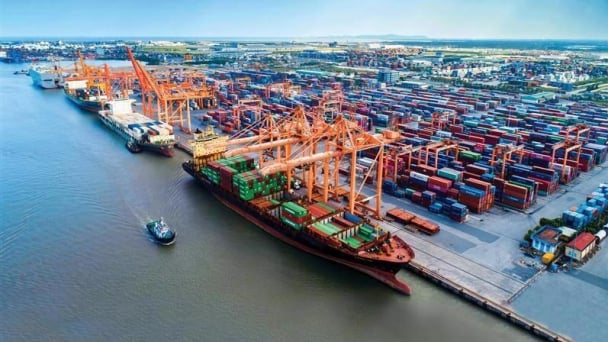
(VAN) South Korea is currently the second-largest investor in Hai Phong in terms of the number of projects (186 projects) and the largest in terms of total registered investment capital, reaching USD 14.2 billion.
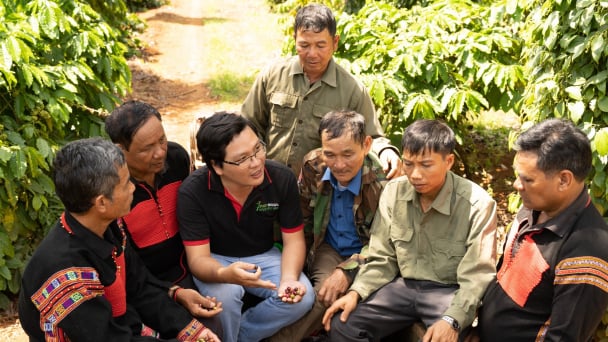
(VAN) As consumers become more environmentally conscious, legal regulations grow increasingly stringent...